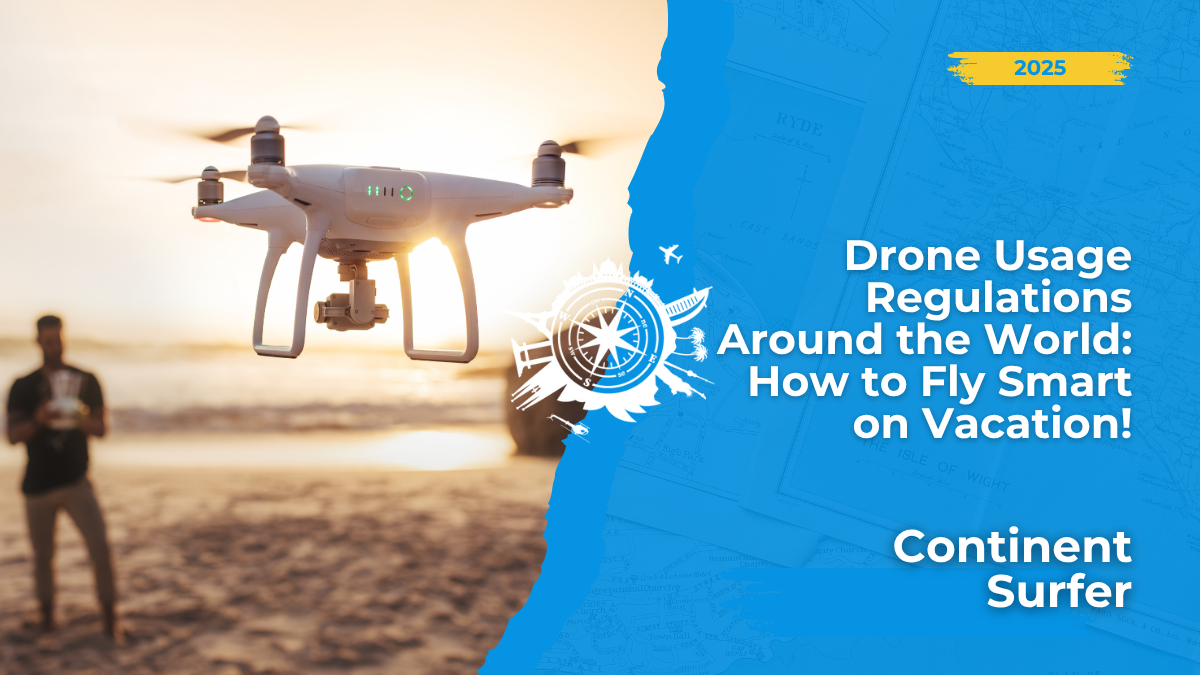Drone usage regulations around the world: How to fly smart on vacation!
The popularity of drones is rapidly increasing worldwide, and more and more people are using these devices for tourism, personal, or commercial purposes.
written by: BOGI – Continent Surfer
However, it’s important to note that drone usage regulations can vary significantly from country to country, and strict conditions may be applied to flying. Let’s see how this situation unfolds in some popular destinations and in Hungary!
1. England (United Kingdom)
- Tourists: In the UK, tourists must also comply with local drone regulations. The drone’s weight must not exceed 250 grams, and the pilot must always keep the drone in sight during flight. Flying near airports, prisons, and other sensitive areas is prohibited.
- Private Individuals: The above rules also apply to personal drone use. Additionally, pilots must register their drone with the Civil Aviation Authority (CAA) system and pass an online theory test.
- Commercial Purposes: Commercial drone use requires a permit. Pilots must undergo specialised training and hold a CAA-issued permit. Commercial flights are subject to stricter regulations, such as flight altitude and flight area restrictions.
- Links: CAA Drone Regulations

2. Fiji
- Tourists: Drone use is subject to permits in Fiji. Tourists must obtain a permit from the Civil Aviation Authority of Fiji (CAAF) before flying. During flight, local rules, such as flight altitude and flight area regulations, must be followed.
- Private Individuals and Commercial Purposes: Local residents and commercial drone users must also obtain a permit from the CAAF. Commercial flights are subject to stricter regulations, and special permits may be required.
- Links: CAAF Drone Regulations
3. Australia
- Tourists: In Australia, tourists must also comply with local drone regulations. The drone’s weight must not exceed 2 kg, and the pilot must always keep the drone in sight during flight. Flying near airports, prisons, and other sensitive areas is prohibited.
- Private Individuals: The above rules also apply to personal drone use. Additionally, pilots must register their drone with the Civil Aviation Safety Authority (CASA) system and pass an online theory test.
- Commercial Purposes: Commercial drone use requires a permit. Pilots must undergo specialised training and hold a CASA-issued permit. Commercial flights are subject to stricter regulations, such as flight altitude and flight area restrictions.
- Links: CASA Drone Regulations

4. Germany
- Tourists: In Germany, tourists must also comply with local drone regulations. The drone’s weight must not exceed 250 grams, and the pilot must always keep the drone in sight during flight. Flying near airports, prisons, and other sensitive areas is prohibited.
- Private Individuals: The above rules also apply to personal drone use. Additionally, pilots must register their drone with the Luftfahrt-Bundesamt (LBA) system and pass an online theory test.
- Commercial Purposes: Commercial drone use requires a permit. Pilots must undergo specialised training and hold an LBA-issued permit. Commercial flights are subject to stricter regulations, such as flight altitude and flight area restrictions.
- Links: LBA Drone Regulations
5. Bali (Indonesia)
- Tourists: Drone use is subject to permits in Bali. Tourists must obtain a permit from the Indonesian aviation authority (Directorate General of Civil Aviation) before flying. During flight, local rules, such as flight altitude and flight area regulations, must be followed.
- Private Individuals and Commercial Purposes: Local residents and commercial drone users must also obtain a permit from the aviation authority. Commercial flights are subject to stricter regulations, and special permits may be required.
- Links: Indonesian Aviation Authority, BaliShoot, hubud@dephub.go.id, info@airnavindonesia.co.id

6. Switzerland
- Tourists: In Switzerland, tourists must also comply with local drone regulations. The drone’s weight must not exceed 250 grams, and the pilot must always keep the drone in sight during flight. Flying near airports, prisons, and other sensitive areas is prohibited.
- Private Individuals: The above rules also apply to personal drone use. Additionally, pilots must register their drone with the Federal Office of Civil Aviation (FOCA) system and pass an online theory test.
- Commercial Purposes: Commercial drone use requires a permit. Pilots must undergo specialised training and hold a FOCA-issued permit. Commercial flights are subject to stricter regulations, such as flight altitude and flight area restrictions.
- Links: FOCA Drone Regulations
7. Hungary
- Tourists: In Hungary, tourists must also comply with local drone regulations. The drone’s weight must not exceed 250 grams, and the pilot must always keep the drone in sight during flight. Flying near airports, prisons, and other sensitive areas is prohibited.
- Private Individuals: The above rules also apply to personal drone use. Additionally, pilots must register their drone with the National Transport Authority (currently the Ministry of Construction and Transport) system and pass an online theory test.
- Commercial Purposes: Commercial drone use requires a permit. Pilots must undergo specialised training and hold a permit issued by the National Transport Authority (currently the Ministry of Construction and Transport). Commercial flights are subject to stricter regulations, such as flight altitude and flight area restrictions.
- Links: KTI, Drone Regulations

General Tips and Important Notes for Drone Use:
- Always check local regulations: Drone regulations often change, so always check the current regulations of your destination country before departure. You can find the latest information on aviation authority websites or in local legislation.
- Keep the drone in sight: In most countries, it’s mandatory for the drone pilot to always keep the drone in sight during flight. This means you shouldn’t fly it too far or too high.
- Don’t fly over people: Flying over people with a drone is prohibited, especially over larger groups. This can be dangerous and violates privacy.
- Don’t fly over sensitive areas: Flying over airports, military installations, prisons, hospitals, and other sensitive areas is prohibited. Drone use in these locations can pose a security risk.
- Respect privacy: Don’t violate others’ privacy with drone footage. Don’t take pictures of others’ homes or private property without permission.
- Insurance: Liability insurance is mandatory in most countries for commercial drone use. It’s also recommended to purchase insurance for personal use to cover potential damages.
- Permits: If you want to use your drone for commercial purposes, or if your drone’s weight exceeds a certain limit, you must obtain a permit from the aviation authority. The permitting process can be time-consuming, so it’s worth starting in advance.
- No-fly zones: Many countries have no-fly zones where drone use is completely prohibited or restricted. You can find these zones on aviation authority websites or in specialised applications.
Important Legal Note:
Drone usage regulations are complex and constantly changing. The information provided in this article is for informational purposes only and does not replace official legal advice. Always check the current legislation of your destination country before using a drone.
Did you know?
Ancient Origins? While modern drones are high-tech, the concept of unmanned aerial vehicles isn’t new. Some historians trace early ideas back to the 19th century, with uncrewed balloons and even aerial torpedoes used in warfare!

Like what we do?
If so, please support us, every little counts and is much appreciated!
You will help us to come up with useful information regularly, so please support us every once and a while or even monthly! Thank you!
Source(s):
- CAA Drone Regulations
- CAAF Drone Regulations
- CASA Drone Regulations
- LBA Drone Regulations
- Indonesian Aviation Authority
- FOCA Drone Regulations
- KTI, Drone Regulations
Join the Continent Surfer community!
Subscribe to our newsletter and be the first to receive the latest news, useful tips, and exclusive offers!
Comment

